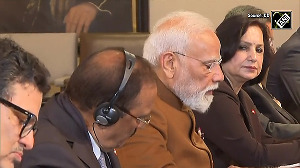Give yourself a pat on the back if you know the correct answer to any one of the following questions about the Indian economy and can support it with official data: What is the accurate current inflation rate? Is there an ongoing rotation in the economic growth drivers from consumption to investment? The list goes on.
If you don't, try another approach: give yourself another pat on the back if you know anyone who does. Several policy makers and analysts will be able to give you guesstimates at best.
The Indian economy is undergoing significant changes and is becoming more integrated with the rest of the world. However, our economic data are woefully inadequate in giving high-frequency mappings of the evolving economic trends. This deficiency needs to be urgently addressed if policymakers expect to make decisions about the best policy mix need for the economy.
Here are a few suggestions to improve just the basic monthly data needs that are available in countries poorer than India and with much less economic technical capability.
Quarterly GDP by expenditure: The Central Statistical Organisation (CSO) announces annual GDP by expenditure with a lag of one year. It does not announce any quarterly data for expenditure GDP, indicating that policymakers are flying in the dark about what has happened to the demand-side drivers of expenditure GDP in the past few quarters.
Inflation indicators: All relevant parties know the weekly Wholesale Price Index is seriously flawed in how it is updated while significant portions of the underlying items are not updated for a long time for reasons other than that they are administratively controlled. A faulty indicator on a weekly frequency only adds more noise than signalling the underlying trends. Beyond this, the government should consider announcing a decent consumer price (CPI) index.
International trade: The government deserves credit for now reporting the monthly international trade data with a much smaller lag. However, the monthly trade profile by country and by product is still announced with a significant lag of several months. The most mind-boggling issue with the monthly international trade data is that the year-to-date data on exports and imports include revisions to previously announced data, but the revised monthly data are not reported!
Bank lending by sectors: As financial intermediation improves and credit-to-GDP ratio increases, it is important for policy makers and market economists to have a good understanding of the evolving credit trends. It is not as if banks don't have data on who they are lending to that cannot be summarised on a monthly basis.
Other than, perhaps, Delhites, drivers of improved and faster cars need better dashboard indicators for safe maneuvering of their vehicles. However, the current range of indicators for high-frequency tracking of India's economic trends is limited, and what are available generally suffer from significant shortcomings. Let us address the shortcomings before we are caught in an accident.
Rajeev Malik is vice-president and senior economist at JPMorgan Chase Bank, Singapore. Views expressed here are personal.






